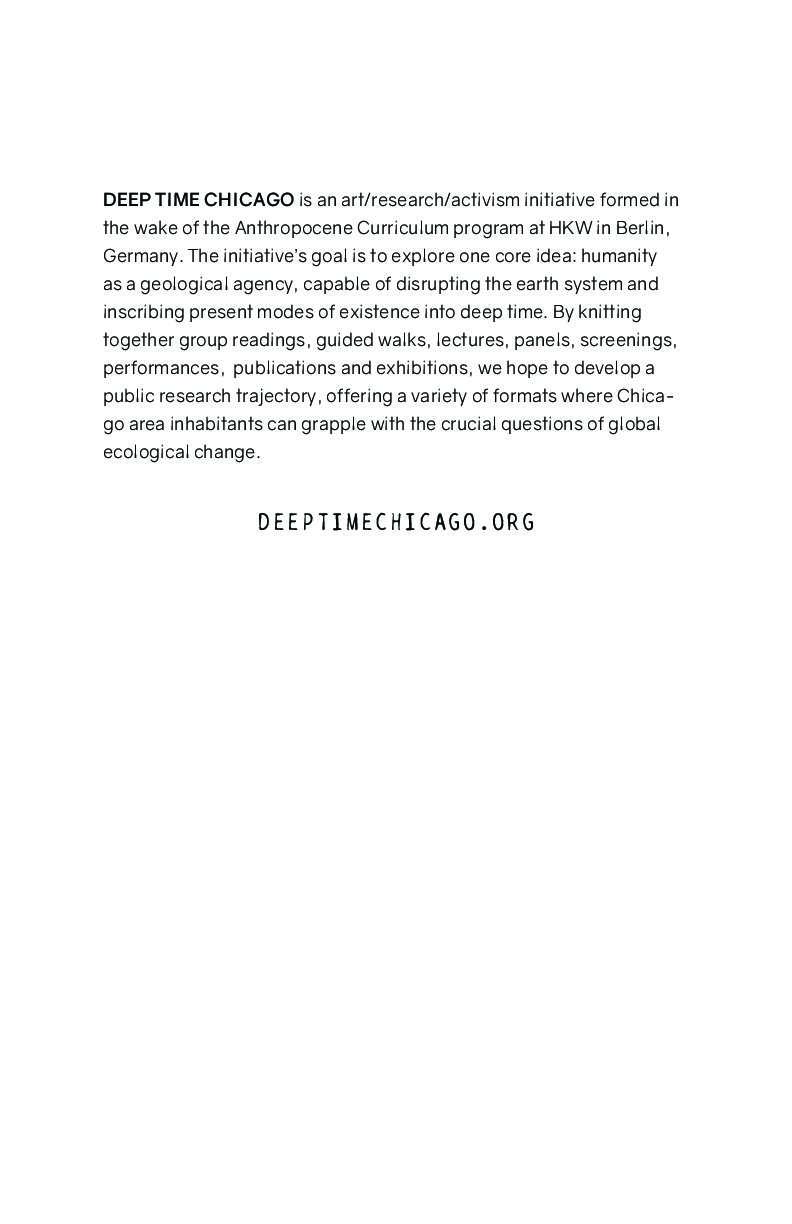Bound with Bright Beautiful Things
Departing from Panchatantra, an ancient Indian collection of interrelated animal fables written in Sanskrit, in this micro-publication artist, writer, and publisher Caroline Picard, considers the problem of anthropocentrism. Picard blends the animal fables with commentary and drawings in order to tackle what she sees as a “basic flaw in our species’ conception of diplomacy” that neglects “the independent politics of surrounding creatures in favor of its own exceptionalism.” Part of the Deep Time Chicago pamphlet series.


Caroline Picard, “Bound with Bright Beautiful Things,” Deep Time Chicago Pamphlet Series, 2017
Download (28 Pages)There is always a time before, the second / minute / hour / day / week / month / year before, a preceding generation, an older dynasty. Each human occasion is locked within a larger suite where instants fall on the page of our collective and singular imaginations like notes on a score. We acknowledge a darker, deeper time from which we must have emerged—the stuff of myth, divination, philosophy, and theory. Adam Smith drew hunters and shepherds from this amorphous past to produce a theory of capital and society in The Wealth of Nations. Archaeologists unearth artifacts in anthropological digs with parallel intensity, puzzling over the teeth of Neanderthals where isotopes in dental plaque reveal traces of raw aspirin and Penicillium.1 Or the virtual, scientific models—studies and projections that aim to uncover a point of origin (a bang for instance) after which life began and then diversified. Yet rather than lock this point of geologic departure in time, the world instead recedes into the past of human knowledge, growing exponentially older as scientific tools become more sophisticated.
Extract from Caroline Picard, “Bound with Bright Beautiful Things,” Deep Time Chicago Pamphlet Series, 2017.
